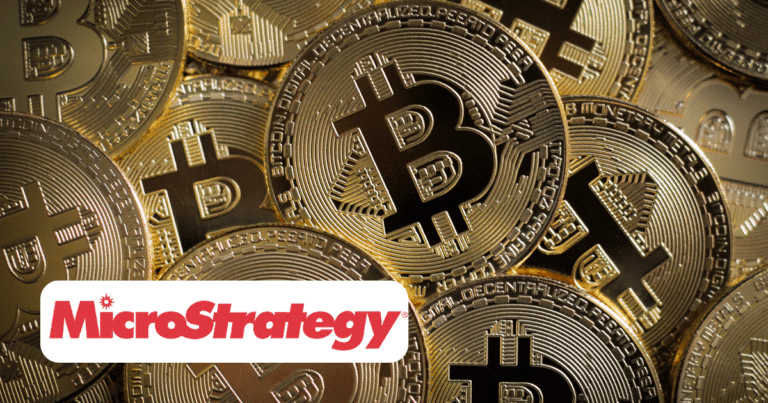This is an unformatted and completely unedited email interview with bitcoin Satoshi Vision (bitcoin SV for short) founder Craig S. Wright. Since we did not receive answers on our follow-up questions, we choose to publish the interview unedited for maximum transparency.
To fully understand the context of this text, we highly recommend you to read our column about this interview before reading it.
Explanations:
* Our initial questions are in bold
* The answers by Craig Wright are in regular text
* Our unanswered follow-up questions are marked blue
—
BSV is getting delisted from Binance as well as other exchanges right now; what are your thoughts on that?
There is a major problem with your question; we haven’t been delisted from exchanges such as Binance, we have been removed from criminal bucket shops, that is, unlicensed, unregulated wash-trading criminal organisations. Binance skip jurisdictions, and jump in and out of countries to avoid prosecution. It is the reason they left Japan. As soon as they start to be investigated by the jurisdiction, they stop to find some place else.
They believe, in error, that by doing so they can avoid criminal sanctions. Unfortunately for them, they are far more ignorant than any of the people in effective criminal organisations such as Liberty Reserve. Liberty Reserve believed that it was above the law. It acted from Costa Rica, and ran a decentralised organisation with more than 30,000 distributed points of ingress and egress.
Costa Rica was non-treaty related to the US. They offered cryptocurrency-based systems that allowed criminals to move funds around the world. Here we have an important word: funds. You see, the legislation does not say money, it says funds. The distinction was important. In the appeal to a conviction, one of the principles of Liberty Reserve said that Liberty dollars and Liberty Euro were cryptocurrencies and would not come under the anti-money laundering (AML) provisions. Unfortunately for the criminals involved, the nature of funding is irrelevant. The fact of the matter includes diamonds, works of art, expensive cars—about anything you can use to pay someone.
It includes cryptocurrency.
The problem is nothing new; just to take a couple of examples, we can look at the following:
- E-gold – operated between 1996 and 2009;
- Known level of operation: $2 billion transactions/year (2008)
- Liberty Reserve – 2006 to 2013;
- “Liberty dollars”
- “Liberty Euros”
- Known as the bank to the underworld
- More decentralised than every single cryptocurrency in existence today
- ~$0.9 billion transactions/year
Others also existed, including Goldmoney.com, e-Bullion.com, CrowneGold.com, Pecunix.com, and INTgold.com.
Bitcoin was not created the same way. Bitcoin was created to be different to everything that had ever happened before. E-gold, Liberty, they were all digital currencies that existed to facilitate money laundering. They allowed trading without verification and the transfer of funds to and from different locations without requiring any interaction between anti-money laundering regulations. In the case of Liberty, it allowed account-to-account transfers and funded individual accounts through “exchangers.” It was a more sophisticated version of what is happening in Binance.
Liberty ended up as a 17-country takedown. At least US$6 billion was laundered using the system. Binance has created a less sophisticated criminal network—which is what it is.
Effectively, what you’re talking about when looking at such unregulated bucket shops, and note that I keep saying bucket shops and not exchanges, is simply a way to remove all the controls that make a system valid in the real world. A system such as Binance exists to bypass consumer protection and act outside the law. In effect, they are aiding and abetting criminal groups in the movement of money and funds. Such fools think that they are above the law.
Unfortunately for them, I developed Bitcoin to purposely break many of the ties that cryptocurrencies had with crime.
The only way that a system such as Bitcoin will work is within the legal framework and within the system of tax and consumer controls that exist in the regulated market. The bucket shops fail to understand that they are less than 1% of the network developed by Liberty Reserve.
Binance and other criminal groups exist to aid in the bypassing of sanctions and to aid in the criminal money laundering industry. It is not about banking. Companies, if I may use the word for cartels would be better, such as Binance exist not to provide banking services, but to aid in the facilitation of laundering money. They allow cross-border trading of systems that are purely designed to destroy transactional records.
Would it be an option to launch an exchange of your own at some point?
Do you mean, start a criminal group of my own? No, I prefer to stay on the side of the light. In the next couple of years, I expect people to see criminal action. You will start to see the true power of Bitcoin. Bitcoin was developed because of the interference of money transfer operations over SWIFT, many of which were facilitated by Russian criminal groups. With an immutable evidence trail, Bitcoin retains the ability to be private, yet utterly destroys the ability to make an anonymous coin. It’s what made Bitcoin difficult. There was never any difficulty in distributing issue, Liberty Reserve did so far more than Bitcoin’s ever done. Creating a system that logs use allowing prosecutors to track criminal activity: such is the real benefit of Bitcoin.
Such is my gift to the world.
There are a lot of buzz and discussions about you on the internet right now. A lot of harsh words are being said about you. How does that feel?
Good. You see, I developed Bitcoin in response to the anarchist systems that were being developed to facilitate money laundering. It’s a response in the sense that it acts as a poison pill. It is both more effective for general use and seeming to be initially favourable to a number of groups that want to use it for illicit activity. It doesn’t matter whether you want to use Monero, Zcash, or any of the other vain attempts to make a broken version of Bitcoin— the difficulty I overcame in creating Bitcoin was to create a system that didn’t work if you bypassed the ledger. A ledger of evidential quality that could be presented within courts and still overcome hearsay objections. You understand it is not an easy task.
I’ve spent my life fighting fraud and illicit crime. The previous 10 years involved my being under the radar. It was important. During the same time, the development of systems such as those used within Liberty Reserve, blinded currencies, and the associated anonymous systems have stagnated. More importantly, law enforcement and investigation techniques have caught up and exceeded everything that such illicit coins can do. Bitcoin acts as a poison pill for them because it replaces them. In terms of general use, Bitcoin is far more effective, and offers more to the general consumer than any criminal anonymous payment system.
I have the belief that if I hadn’t created Bitcoin when I did, the development of anonymous transaction systems used within coins such as Liberty Euro would have gained enough attraction to be valid by now. Earlier, they were being used at a level that was growing at such a rate and with so much input from the cyberpunk community that by now, they would have exceeded the capabilities of lawful interception. The last decade with Bitcoin has taken the same people down a path that does not easily convert to criminal use. Where criminals do use Bitcoin, they are easily tracked.
Follow-up question: You say that it was important that you acted under the radar during the first 10 years. Could you explain why this was important? And why isn’t it as important now?
Are you Satoshi Nakamoto?
Yes.
Follow-up question 1: Is “Satoshi Nakamoto” a pseudonym for a group of people that created bitcoin, or is “Satoshi Nakamoto” your personal pseudonym?
Follow-up question 2: Does that mean that you control the ~1 million untouched bitcoins that were mined during bitcoins early days? If so: isn’t that a potential problem when it comes to trust and bitcoin adoption?
There are a lot of people that do not think that. What evidence do you have for that claim?
The truth. You do understand that I’m studying law at a doctoral level? I have a master’s degree in law from Northumbria here in the UK. In the past, I was an expert witness and more for the Australian Federal Police, and acted in several cybercrime investigations. There’s a reason I’m going to court; evidence is not something that is derived using online trolling and the falsification of claims that we see in the attacks against me.
Wikileaks and I have been having a few disagreements for over a decade. It is my opinion that they are a criminal group and funded with such sorts of agendas.
You can trust me when I tell you, I’m smart enough not to go before the Queen’s bench in the country that I reside in to take action that would lead to perjury if I lied. No, proof is not a cyberpunk wet dream. You cannot just sign a document and say it is me. Non-repudiation does not exist. I know that many within the cryptographic community want to say that it should—it can’t. Non-repudiation is an anathema to law. No matter what happens, an individual has the right to repudiate a document, and others have to bring evidence to support claims. Code is not law.
Unfortunately for many, they have listened to the fools, the very people Bitcoin was designed to entrap. Oh, don’t worry, I’m not an active law enforcement agent, so any entrapment that I’ve instigated to get such people is perfectly legal.
Follow-up question 1: Will a court process initiated by you really be able to present proof that you are Satoshi? In Sweden (which I’m most familiar with) the court doesn’t take into account if the things said is the truth or not, when judging in defamation cases (for example: if you call me a racist the court will investigate if your intention was to smear my name and if you succeeded, not whether or not I am a racist). If a UK court says that it was in fact defamation to say that you are not Satoshi, would that really be the same thing as proof that you are Satoshi Nakamoto?
CZ tweeted “Craig Wright is a fraud,” and “the real Satoshi can digitally sign any message to prove it” – Why haven’t you?
It is not how evidence works. It’s a claim made by a guy running a criminal enterprise, an organisation designed purely to evade law—one designed to facilitate money laundering and evade tax.
You don’t sign a message to prove. Code is not law. Code does not replace law.
Bitcoin was not designed to bypass courts; it was designed to facilitate systems and allow the simplified integration of court processes into business processes. I’m sorry, the same people who wanted bit gold failed to understand the very basics of Bitcoin. Then, I always understood that some of the people would see it the wrong way. As I said, if it wasn’t for Bitcoin, we would have had criminal networks that would have worked. Bitcoin has allowed us to have freedom. You see, where criminals win, freedom loses.
Follow-up question 1: Regardless if it would be proof or not: could you sign a message or move a small number of bitcoins from the previously mentioned ~1 million bitcoins that were mined the first years? If so: why haven’t you? Even if it wouldn’t be proof, at least a lot of people would accept that you are Satoshi if you did.
Follow-up question 2: You have been posting things that could be considered an attempt to present evidence (the signature in your blog post “JEAN-PAUL SARTRE, SIGNING AND SIGNIFICANCE”, for example). Quite a few well-educated and competent people claim that these are fake and doesn’t prove anything. Are those people wrong, or have they simply misunderstood something? Was your intention not to prove that you are Satoshi Nakamoto? If so; what was it?
Your lawyers have been sending letters threatening to sue people for (repeatedly) calling you a scam and a fraud. Why did you do this – and are you planning to follow them through?
I’m sorry, do you believe that people should be allowed to make up claims? Do you believe that criminals should be able to say anything they want in order to facilitate their crimes? Do you think that people who manipulate markets, engage in wash-trading strategies, create pure scams such as the concept of an ICO with the sole goal of stealing money should be able to say anything they want?
No. It is not acceptable.
I don’t make threats. It’s time people discover this. My time horizon might be longer than yours, I think in decades. Having said so, the pain is about to start for many people in the industry. It’s time they run away, crawl back under the rocks that they slithered out from, and stop their crimes. What they are going to learn is that the scams they tried to mirror from the 90s, the web IPOs, the USENET penny share pump schemes, and the digital pink sheet Ponzi schemes, are about to end. What they are going to discover is that Bitcoin created something that allows them to be tracked. Unlike in the 90s where they were able to delete logs and records and crawl back under their rocks to escape justice, Bitcoin is an immutable evidence trail.
When they crawl under their rocks this time, their slimy trials will be immutably stored— forever. Bitcoin means that they can run, but if they ever stop running, the evidence will find them.
Do you think that the court will judge in your favor?
Over and over and over. If I did not think that we had not just a good chance but a ground- shakingly overwhelming case, we would not have filed.
What are your plans for the future? I have many plans for the future.
It is my goal to achieve 10,000 patents. Right now, we have 1,276 white papers in play that will lead to patents filed globally.
After I complete my current doctoral studies (I am doing a PhD in applied mathematics at CNAM in Paris and concurrently doing a doctor of law at the University of Leicester, UK), which I expect to complete within the next 12 to 24 months, I have plans for further study. I want to do a DBA, a PhD in history, a PhD in the history of philosophy, a PhD in epidemiology, an EdD, and a PhD in forensic psychology.
And one day, I will finally get around to doing something that is a little bit of a hobby: study enough physics to get a PhD in physics.
I know, we all have our eccentricities. Mine is study.
In the next 20 to 30 years, we will take and build out all we’re doing and designing, and make Bitcoin into what I always envisioned it to be. I intend to form the global plumbing for a commercial replacement to the Internet. The Internet suffers from the tragedy of the commons. ‘Free’ does not work. The socialist idea of the utopia is a dystopia that makes 1984 look like paradise. Metanet and what I’m doing and what my team is helping me do will alter it and change the trajectory from one of degradation towards one of freedom.





